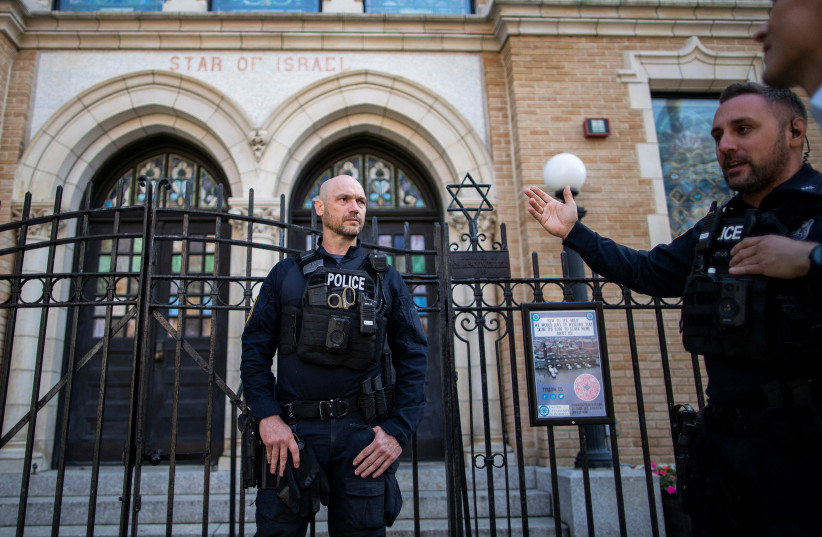Unsurprisingly, we received a reminder last week that antisemitism has not disappeared. Instead, it is alive and kicking.
The news was brought to us by the Anti-Defamation League which published a report claiming that the number of Americans who believe in antisemitic conspiracy theories and tropes has nearly doubled since 2019.
According to the survey, there is also a substantially negative anti-Israel sentiment among Americans with findings revealing substantial belief in anti-Jewish tropes – such as Jews being too powerful, selfish, foreign and clannish.
The poll of a representative sample of more than 4,000 US adults asked the extent to which Americans agreed with different statements about anti-Jewish tropes and found that 20% of Americans, as many as 66 million people, agreed with six or more of the 11 anti-Jewish statements used since 1964.
Among the findings: 39% of respondents believe Jews are more loyal to Israel than the US; 20% say Jews have “too much power” in the US; 21% claim that Jews “don’t care about anyone other than themselves”; and 53% say Jews will go out of their way to hire other Jews.

Think about this for a moment: if you are an American Jew, then four out of ten people you meet think that because you are Jewish you are more loyal to Israel than the United States. Think how many Jews work in government, in Congress as cabinet members and more. All of them are suspected of not being loyal to their country.
Antisemitism in the US and the dual-loyalty trope
That there are antisemites is not new. On Sunday, the Jewish community in Colleyville, Texas will mark one year since a gunman stormed into the local Congregation Beth Israel during a Shabbat service taking congregants hostage. After an 11-hour standoff, an FBI hostage rescue team was able to enter the synagogue to free the hostages held by 44-year-old Malik Faisal Akram.
Rabbi Charlie Cytron-Walker, the spiritual leader of the synagogue, and three others had been held at gunpoint through the day – when the armed man entered the sanctuary and threatened to kill everyone.
The service was being live-streamed on Zoom and the gunman could be heard rambling about how he did not plan to leave the synagogue alive. “If anyone tries to enter this building, I’m telling you… everyone will die,” he was heard saying. “I’m going to die. Don’t cry about me,” the man repeated over and over.
When it comes to the dual-loyalty trope, we have sadly heard too many speeches by former President Donald Trump in which he claims that American Jews owe him support due to the policies his administration had toward Israel.
In December, in response to sharp criticism of his dinner at Mar-a-Lago with Kanye West and known Holocaust denier Nick Fuentes, Trump wrote on his social media platform Truth Social: “Jewish leaders forgot that I was the best, by far, President for Israel. They should be ashamed of themselves. This lack of loyalty to their greatest friends and allies is why large numbers in Congress, and so many others, have stopped giving support to Israel.”
In Trump’s reasoning, because he moved the US Embassy to Jerusalem and recognized Israeli sovereignty over the Golan, Jews owe him a sort of loyalty even as he elevates the worst types of antisemites and perpetuates the idea that Jews, or in this case Jewish leaders, are incredibly disloyal.
Antisemitic tropes are spread by influential people
The poll taken by the ADL shows that when antisemitic tropes are spread by influential people they spread. People believe them and they spread them even more. It is impossible to know exactly how nearly 40 percent of Americans reached the decision that Jews are more loyal to Israel than to the US, but it is safe to assume that some of them were influenced by Trump.
There is a responsibility among leaders to watch their words. Poisoning of the mind is what makes people take action like last year in Colleyville. Antisemitism is a disease that needs to be stopped at its source. It requires responsible people to watch what they say and also for governments to invest in education to stop hate from growing.
